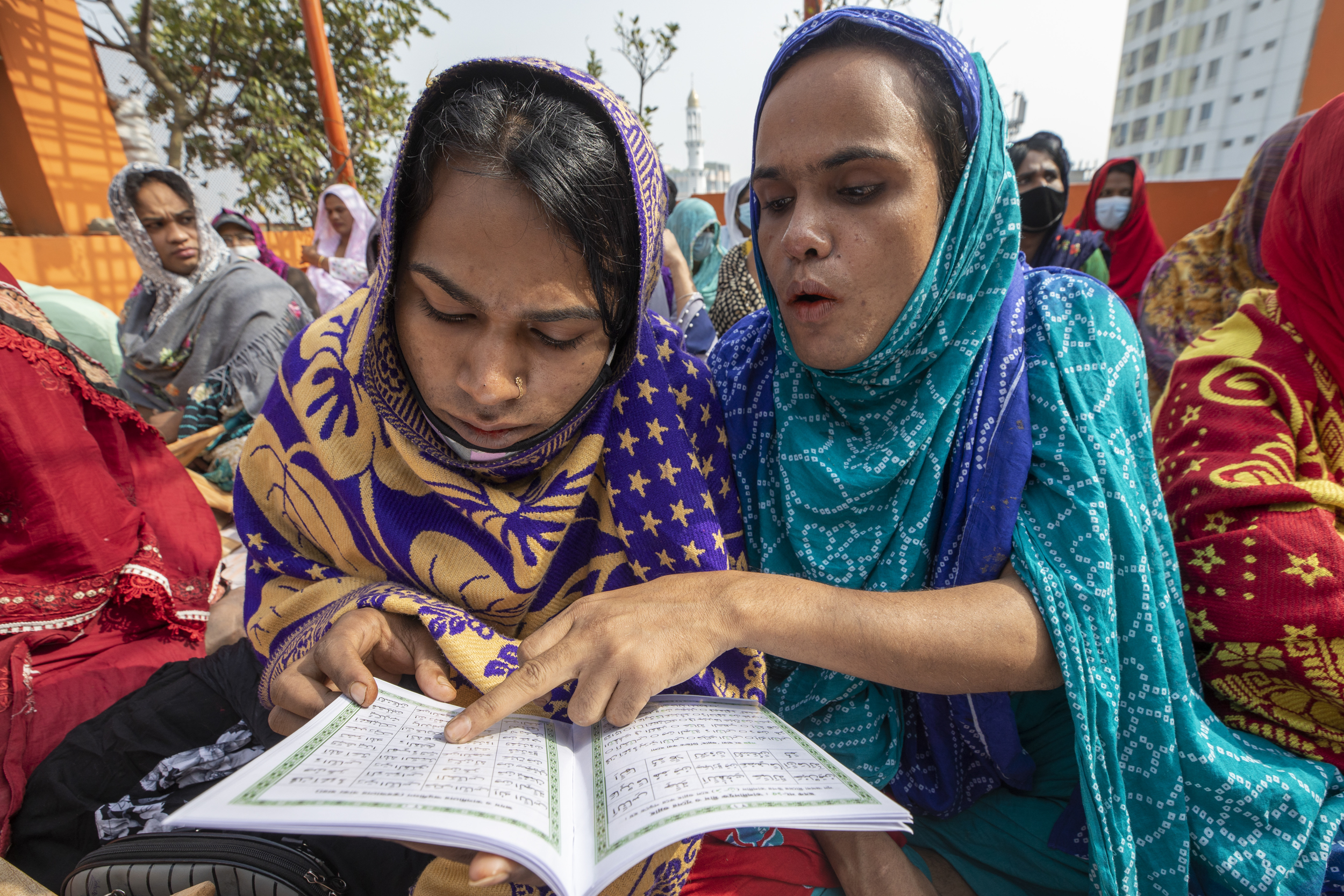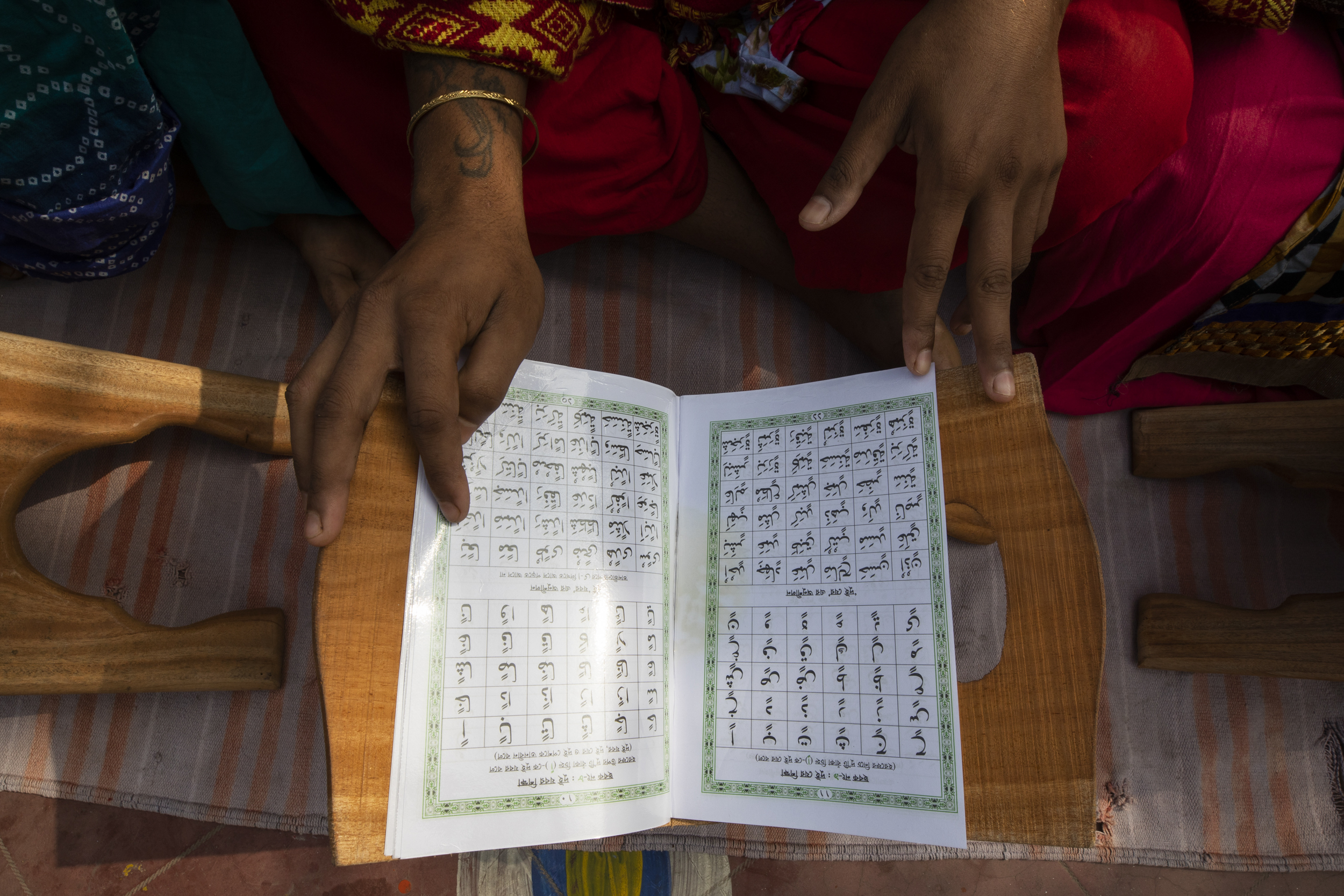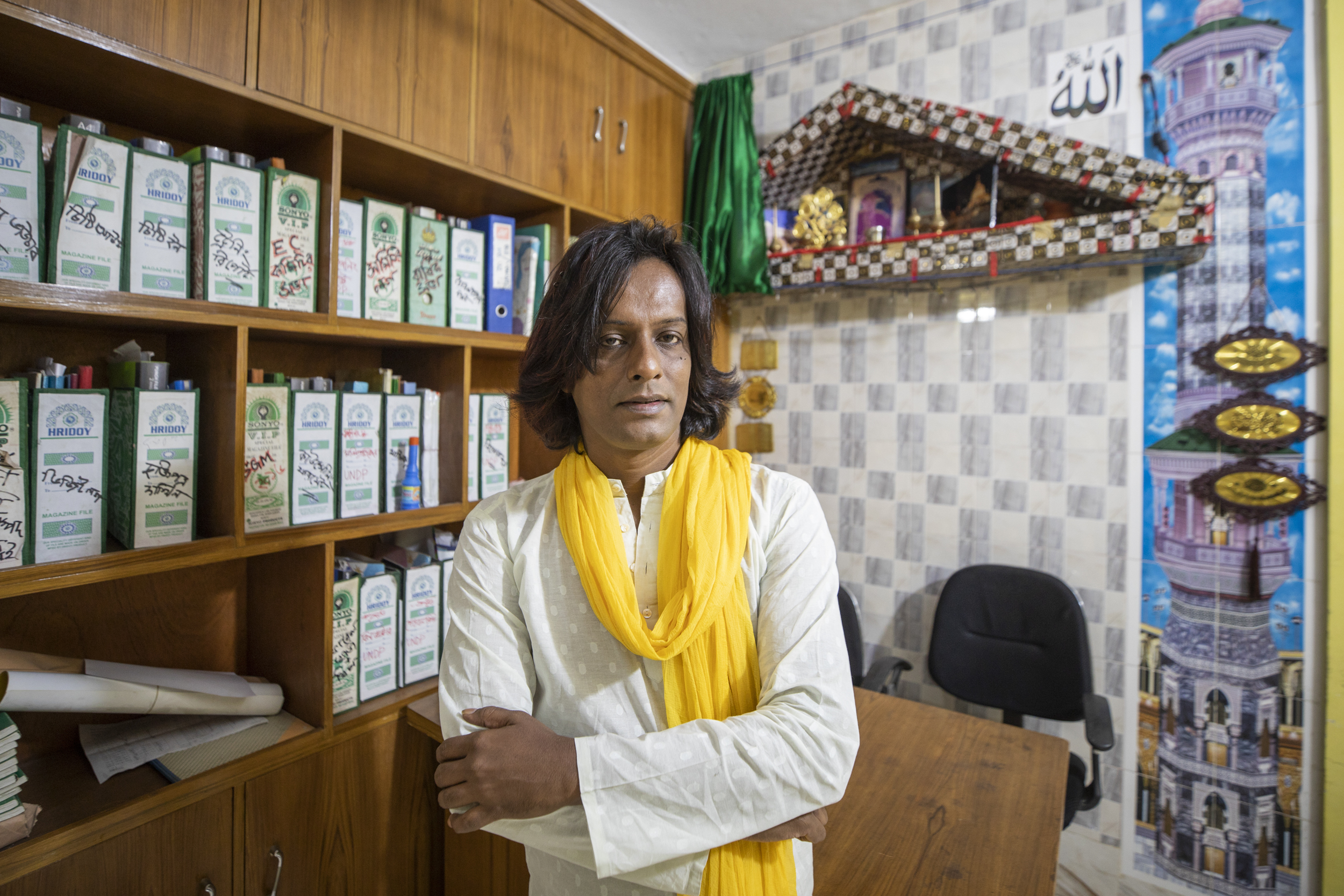Inside Bangladesh’s First School for Trans Students
February 5, 2021Covering her head with a scarf, Bithi Hijra is reading from her elementary Arabic language book along with two dozen other transgender students.
“We have learned how to read and pronounce Arabic letters, how to pray five times perfectly, and how to perform ablution correctly,” Bithi told VICE News World, sitting at the terrace of the seven-storey building of Dawatul Koran Third Gender Madrassa, which is Bangladesh’s first Islamic school for the transgender community
Hijras, as transgender people are known in South Asia, dress in traditional female attire for which they often face discrimination. Hijras have a crucial place in many cultures in the region, as their blessings are sought for auspicious events like weddings and births. Many of them make a living by performing at such events. Sex work is also not uncommon.

More than 150 students have been studying Islamic subjects free of charge at this privately funded school since November 2020.
“It’s a great initiative for us. We could not have imagined. We hope to learn the Quran and die with its spirit,” said Bithi, an economics graduate in her 30s. She said she was working as a counsellor with a Dhaka-based non-profit, but could not continue due to discrimination in salary and harassment.
More than 10 years ago, she left her house in south Bangladesh’ Barisal district after her sister’s wedding was cancelled due to Bithi’s sexual orientation. She attempted suicide but survived.
Bithi now lives in Dhaka with other people from the transgender community and collects money by performing at events in the capital.
Bithi’s senior Mitu Hijra said, “Every soul will taste death. As long as we are born as Muslim, we must have our religious education.”

There are around 10,000 hijras in Bangladesh, according to the government, which recognises a third gender.
“Most of the transgenders are Muslims [in Bangladesh] but are far away from the spirit of Islam. We are just trying so that they return [to Islam],” said Shamsul Hoque, one of the two teachers at the school.
Imparting religious education and getting the community out of the kinship setup is crucial for their well-being, according to a study from the Bandhu Social Welfare Society, which is a Dhaka-based non-profit.
Ohidul Islam Parboti, the vice-chairman at transgender rights group, Sustha Jibon [translated into healthy life], told VICE News World that the society’s perception of hijras might change for the better now they have joined the seminary. “It will pave the way for social inclusion,” she said. “We have many frustrations. Religion will heal our pain and bring us inner peace”.
The school’s founder, Maulana Mufti Abdur Rahman Azad, said that eight such schools were launched in the last three months. “The idea is gaining popularity because of flexible timings of schools and zero-fees.”
Livelihood concerns still persist. “What will I do with Islamic education when I am starving?” asked Bithi. “We can’t afford to lose our regular income.”
Azad said that the school curriculum will be developed further and students will and efforts are underway to give vocational training to trans students.

VICE World News reached out to Bangladesh Social Services Department and the National Human Rights Commission for comment but was told the two bodies were unaware of the initiative.
Md Shah Jahan, deputy director at the Social Services Department that is responsible for making policies and welfare schemes for marginalised communities, said that per his experience, hijras are not willing to take up jobs. “Rather, they want to extort people,” he said.
Hijras in the country can avail a monthly allowance of $7. The amount, Jahan acknowledged, is meagre.
A mentor from the transgender community told VICE News World that many organisations provide them with jobs to impress donors, but they vanish once the project is over.
“There has to be a proper plan for us.”
Follow Muktadir Rashid on Twitter.
